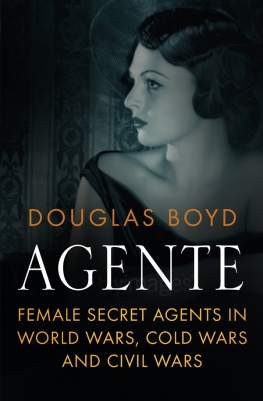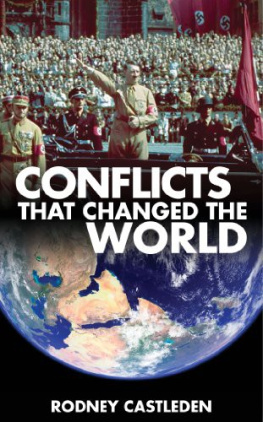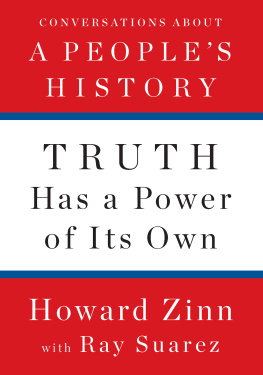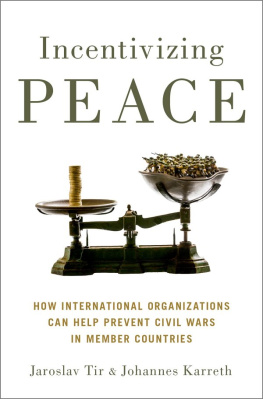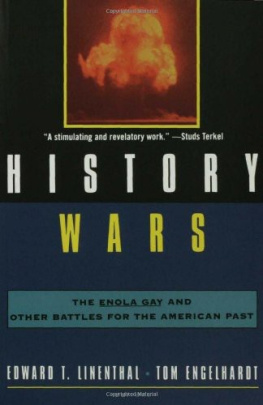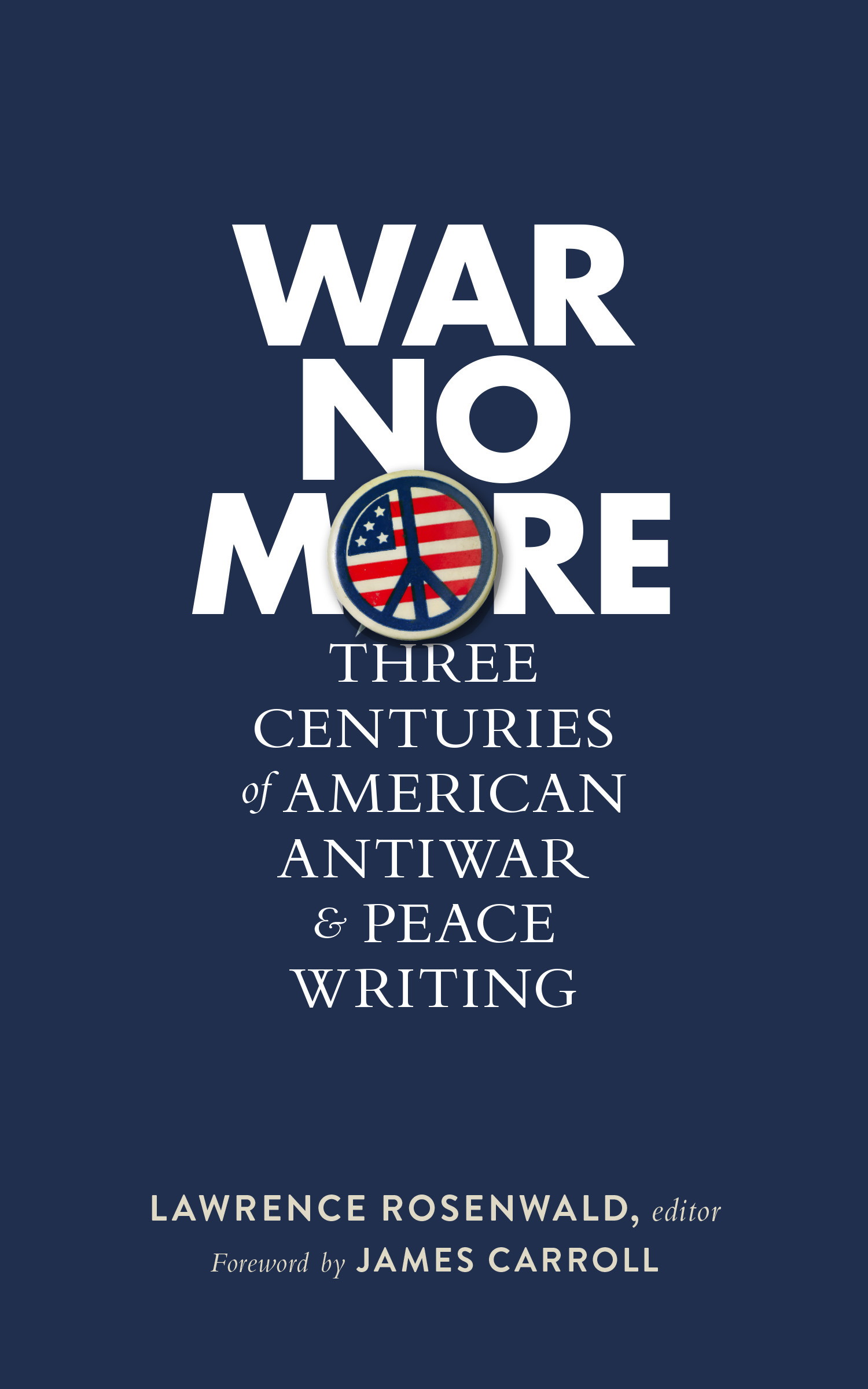General Advisory Committee to the U.S. Atomic
Energy Commission
BY JAMES CARROLL
T HE essential American soul, D.H. Lawrence observed in writing about James Fenimore Coopers Leatherstocking tales, is hard, isolate, stoic, and a killer. That harsh assessment, one must acknowledge, has been borne out across the centuries by a still-unchecked current of war, but through the essential American soul runs a countercurrent of peace, and this volume documents it. Democratic liberalism itself aims at a civics of compromise, while the United States Constitution establishes a structure of amendment that amounts to a politics of self-criticism. Compromise and self-criticism: nonviolence is essential to both.
Wars, though, have defined the nations narrative, especially once the apocalyptic fratricide of the Civil War set the current running in bloodtoward the Jim Crow reenslavement of African Americans, further genocidal assaults against native peoples, imperial adventures abroad, a two-phased World War that permanently militarized the American economy and spawned a bifurcated imagination that so requires an evil enemy that the Cold War morphed seamlessly into the War on Terror. The hard, isolate, and stoic heroes sanctify this dynamic, and are sacrificed to it. Who objects?
Well, Americans sung and unsung do. Henry David Thoreau, repudiating slavery and the U.S. war against Mexico, defined a mode of conscientious objection (Let your life be a counter friction to stop the machine) that would shape an alternative politics across the globe, across a century, ultimately inspiring Dr. Martin Luther King Jr. and his great cloud of witnesses. But far less celebrated citizens have preached sermons, written letters to presidents, composed statements to juries, penned meditations in prison, and posted manifestos. They are poets (I shall die, Edna St. Vincent Millay wrote, but that is all I shall do for death), pop singers, politicians, common soldiers, activists (Do you have the guts, Stokely Carmichael asked, to say Hell no!?), parents, philosophers, Quakers, physicians, nuns, rabbis, and priests (Our apologies, good friends, Father Daniel Berrigan declared in court, for the burning of paper instead of children). Perhaps the author of the most powerful antiwar statement ever made was the U.S. Army major who, in 1968, told Peter Arnett, It became necessary to destroy the town to save it.
Conventional wisdom says that the voices of peace are inevitably drowned out by the trumpets of war, but this volume suggests otherwise. The nuclear age itself, by threatening human self-extinction, launched a moral mobilization that still stirs the national conscience, and its testimonies are here. Antiwar protests could not halt the horrors of Vietnam, but they stopped cold the open-ended Pentagon escalation toward absolute destruction. No expert in realpolitik imagined that the millennial conflict between Moscow and Washington could end without mass carnage, but grassroots alarm about nuclear war (sparked, for example, by atomic physicists who denounced a weapon of genocide) enabled just such an unexpected outcome. Virtues greatest modern triumph was the nonviolent dismantling of the Berlin Wall. Its lesson must be cherished, and taught.
Because the human future, for the first time in history, is itself imperiled by the ancient impulse to respond to violence with violence, the cry War no more! can be heard coming back at us from time ahead, from the as yet unborn men and womenthe ultimate voices of peacewho simply will not come into existence if the essential American soul does not change. The voices of this book, a replying chorus of hope, insist that such change is possible.
BY LAWRENCE ROSENWALD
C OMMITTED pacifiststhose for whom war is wrongwrong yesterday, wrong today, wrong forever, as Ezra Heywood put it in 1863will find in War No More a means of reaching out and making contact with their traditions, of finding strength and illumination in that contact and shock of recognition. But most prospective readers of the book will not be so committed; what does the anthology offer them?
First, a transformative sense that the writing animated by the antiwar impulse is more distinguished and varied than most portraits of pacifists would suggest it could be. Pacifists and war opponents are often seen as cerebral, pious, humorless, self-righteous, and useless. (Hence the most frequent taunt directed to protesters at peace rallies: Get a job!) Some of the writers represented here are indeed pious, some are nearly self-righteous, few are funny. But a just characterization of pacifists and their writing requires a richer vocabulary: visionary, sensual, prophetic, outraged, introspective, self-doubting, fantastic, irreverent, witty, obscene, uncertain, heartbroken. All of those traits are on display here.
But the literary rationale has to be supplemented by two others. One is about America. The United States is the only country in the world to have dropped nuclear bombs in wartime. Our current military budget accounts for 37 percent of world military spending, and is roughly equal to the nine next largest military budgets combined. Our heroes, from George Washington to American Sniper Chris Kyle, are often soldiers. Which may make it surprising that American antiwar writing is so vital, and has been since the worlds first peace societies were established here more than two centuries ago. Or perhaps it makes that fact utterly predictable; the intensity of American warmaking is the context from which the intensity of American antiwar writing emerges. The United States has more often been teacher than student in the history of the nonviolent idea, wrote Staughton and Alice Lynd, and something similar might be claimed for our contribution to the literature of war resistance. At every turn in American history, from the Revolution to the War on Terror, the writers in this book have begged, prayed, demanded, and in some instances suffered heroically to bring an end to particular wars or war in general. They have seldom succeeded; but gathered together, their words constitute a tradition as exceptional as our military might.


